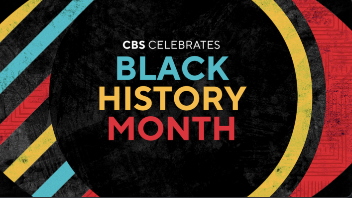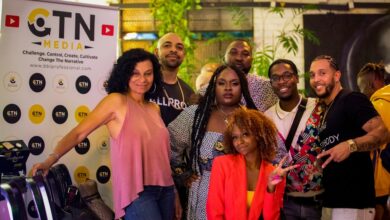What it’s really like to be a black business owner in Wales

When Cherie Arlett won the Llais Cymru Welsh Women in Business Award for best online retailer this year, she saw it as an important opportunity for her to be “visible and representative” for other black Welsh businesswomen. The 39-year-old entrepreneur from Cardiff, who founded online clothing brand Shecan Closet in 2020, says business is “very, very white-occupied” and admitted she often feels like the “odd one out”.
“If I go into a meeting, I’m going to be automatically thinking: ‘Am I going to be the only black person there? I probably will be the only black woman there. How am I going to dress? I need to be looking like I don’t look like a stereotypical black woman, where I’ll be judged on my appearance,” she said.
Better representation leads to better outcomes, she pointed out. “When you’re not seeing yourself, you don’t believe you can,” she said. “When you’re not seeing yourself, it’s sending a message that is not for you – you don’t belong there.”
READ MORE: ‘Racism is still a big issue’ – Three generations on what it means to be black in Cardiff
Research from the British Business Bank in 2020 backs up Cherie’s personal experience. It found that black entrepreneurs report lower turnover and profit than white entrepreneurs, and many fewer meet their business aspirations.
It also found that black female business owners and female business owners from Asian and other ethnic minority backgrounds experience the lowest levels of business success. A lack of high-level representation in the workplace – managers, directors and officials – was found to be a reason for this, as well as access to finance, social capital, deprivation and household income.
Cherie also said there is a lack of diversity within organisations and bodies set up to help businessowners in Wales. Dr Youmna Mouhamad, from Neath, believes this has made it harder for her to get support for her business in Wales.
Youmna, 37, who is originally from France, developed the Nyfasi Deluxe Detangler, which is for textured hair, but also works for curly and straight hair. The inspiration for the comb came when she worked as an au pair in the final year of her PhD in physics and the little girl she looked after would cry whenever her mum detangled her afro.
After spending six years working as an academic, Youmna turned to entrepreneurship and came up with her product, a comb that can be filled with conditioner, which it distributes into the hair – lubricating and detangling at the same time, so the process of combing is less painful and faster.Youmna won an iF design award and Barclays Eagle Labs Rising Star award but has struggled to find help to manufacture her product in Wales.
Youmna has tried to find investors, but she has hit a brick wall. While she acknowledges her struggle to get investment isn’t specific to her as a black person and there is a wider “structural problem”, she thinks a lack of diversity amongst investors in Wales might be compounding it.
“There is simply no support for businesses which have completed the research and development (R&D),” she said. “Unless you get an investor, there is no support by the Welsh Government to actually make that jump from such a big idea like this one to go into market.”
“Venture capitalists invest in things that they understand and things that they like and things that they relate to and unless somebody is into textured hair, or has a family member who has textured hair, or they themselves are diverse, then that challenge is there,” she said.
“My comb is a very specific market, but it’s a huge market and sometimes the miseducation could be that people don’t realise how big the market is. Anybody with textured hair, any black woman will see this product and be like, ‘Wow, okay, I see where this is going’ but if it’s a venture capitalist fund, let’s say, and they don’t have the diversity, they might not see the opportunity.
“If you’re looking at an ecosystem of high net worth people, you’ll likely find less people of colour and then if you’re looking at the ecosystem of investment – because it’s such a high management level – I’m sure you’ll likely find less people of colour. So I think it’s just a mixture of all different things – it’s just representation at all of the different stages and all of the different networks that ends up having consequences into businesses.”
Youmna has resorted to looking at support available to start-ups in France, and is running a pre-order campaign to counterbalance the investment challenges she’s facing. Welsh Government told WalesOnline that its Development Bank of Wales – which provides financial support for Welsh businesses – is committed to fostering a wholly inclusive and diverse workforce.
At the end of last financial year (20-21), 9.1% of its employees were of Black, Asian or Minority Ethnic origin, and over the last three financial years, 9.3% of its new starters were of Black, Asian or Minority Ethnic origin.
Melin Edomwonyi, who identifies as a mixed black woman and lives in Cardiff, launched her design and fashion brand Lil Titsy, which sells original prints on a variety of products including t-shirts, at the end of 2020.
“Lil Titsy is not just another T-shirt brand. It is a brand that embraces femininity in all its forms and changes the way we use words, giving them new meaning in order to be more inclusive,” said Melin, explaining that the word ‘titsy’ is a feminine or unisex equivalent of ‘ballsy’.
“I want Lil Titsy to inspire people to love and express themselves as they are and support all folks who embrace their femininity in their journey. So just like me Lil Titsy is work in progress, it’s an extension of me, which obviously means I feel the need to be visible in order to build a Titsy community.”
In the nearly two years since she set up Lil Titsy, Melin has worked hard to be visible and further her brand’s reach. “Most of me being visible comes from me being black businesswoman in Wales and that’s great – it’s great that I can be a positive role model and be visible as I realised there were no black women in the Cardiff creative industry,” said the 39-year-old, who is of Nigerian and Turkish heritage.
However, Melin said that being visible as a black businesswoman also brings disadvantages. “When black women make themselves visible, or they’re highlighted, in my personal opinion it just feels a lot more amplified than it is. Sometimes I get comments like, ‘Oh, you’re doing great, because you’re everywhere’ but this is because I feel like I have to be everywhere. I have to put that much effort into what I’m doing for it to be known and respected and seen as valuable – and prove myself,” she said. “When you do that, that seems to give people the false perception of ‘Oh, she doesn’t need my support or shout-out. She’s doing great – she’s on this podcast, or she’s on this show, or the BBC highlighted her.'”
The reality is not necessarily a success story, said Melin. “Lil Titsy, so far, doesn’t have the reach to see the change that I’m trying to make,” she said. “I’m grateful to have such positive feedback and ongoing support from my close circle of friends, however this positive feedback unfortunately doesn’t manifest itself in sales or reach.”
Melin also said markets in Wales can sometimes be a negative experience for black entrepreneurs like her. “I have been invited to markets and given the worst spot and equipment which makes you feel terrible when you’re the only black person trading in the entire place.”
She added that the lack of diversity in these spaces could put other black traders off. “Because there is no investment in making sure there’s diversity within the traders, black business owners, perhaps, just want to stay and do their sale online as being in white-dominated spaces can be uncomfortable. It’s a bit of a chicken and egg problem.”
Describing the entrepreneurship world as “lonely” for black women, Melin said she would like “to see a change in the way we approach these questions around what support looks like for black women in business”.
She said: “I just wish that our communities knew what it means to support black women. We keep talking about the fact that black female business owners experience the biggest inequalities in the UK, yet our peers don’t exactly know what it is to support black women in business.
“Support that I mention here is not just about buying my products, it could be interacting with my brand’s social posts, amplifying its voice by sharing, collaborations, introductions to ideas, opportunities or becoming an ally.”
The Welsh Government’s Business Wales service provides free independent advice to people starting, running and growing a business in Wales. A Welsh Government spokesperson said: “Business Wales offers an inclusive service that supports the aspirations of all individuals seeking to start or grow their business, whether this is working on a self-employed basis, starting or growing their business or sustaining an existing business.
“As part of our Race Equality Action Plan, we’ve committed to doing more to ensure the service engages with and meets the needs of people from our Black, Asian and Minority Ethnic communities. Our aim is to ensure Black, Asian and Minority Ethnic people are aware of and use the Business Wales service, so that even more are encouraged to start their own business, contributing to the fairer, greener and more prosperous Wales we all want to see.”
Business Wales offers a wide range of help for business owners, including the Big Ideas Wales scheme, Barriers to Start-Up Grant, SMART Cymru and Start Up Loans. Since 2016, of the 5,253 clients supported by Business Wales to start a business 504 (10%) identify as Black, Asian and Minority Ethnic. Of the more than 10,889 business owners it has supported in the same time period with their business development and growth, 475 (4.4%) identify as Black, Asian and Minority Ethnic.
The service has also reached out and engaged a wide range of community partners. This includes working with the Syrian and Afghan refugee communities, EYST (Ethnic Minorities and Youth Support team Wales), BME forums, ACF, visits to mosques, Kurdish community and others.
READ NEXT:























































